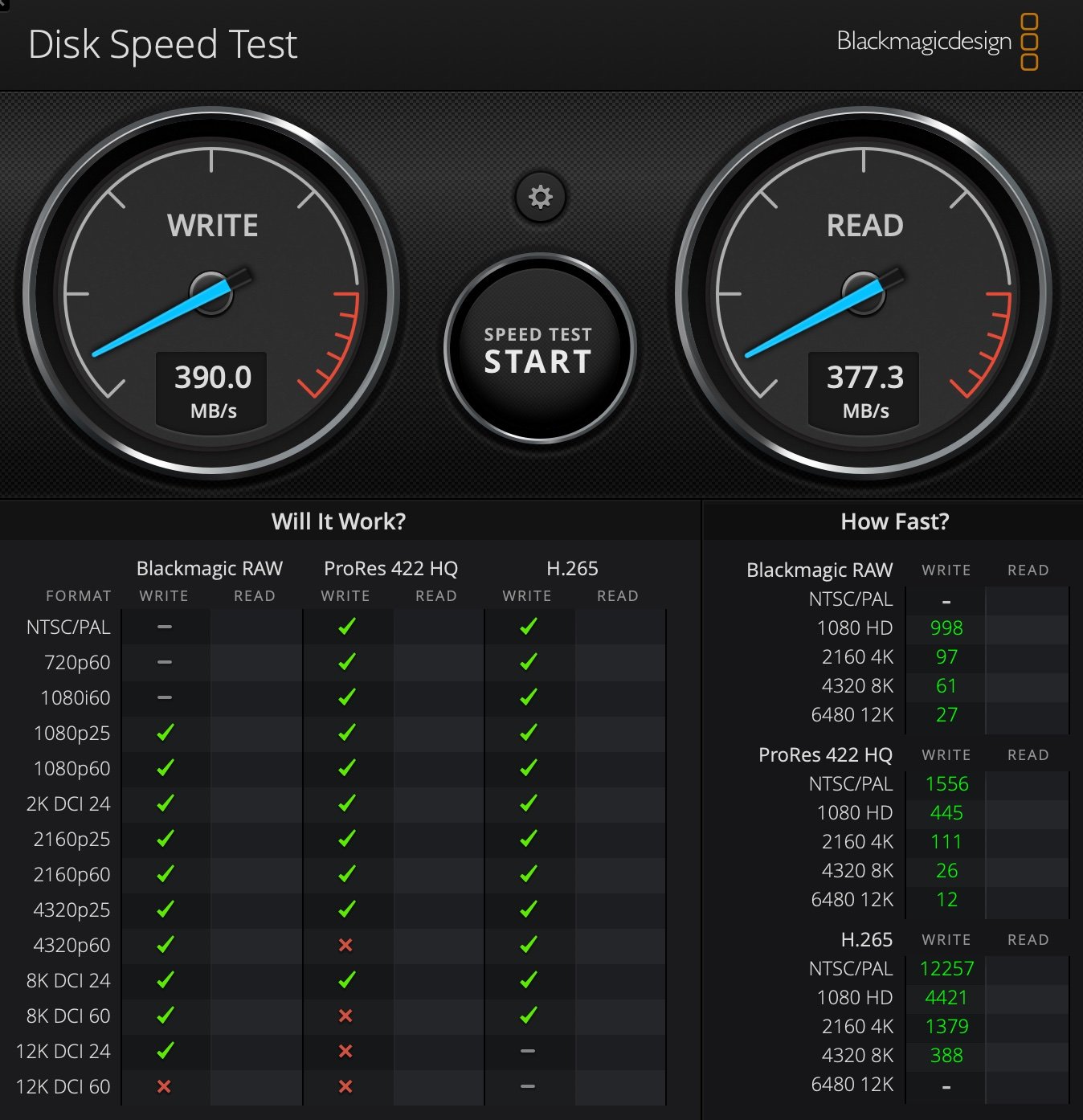SanDisk Extreme Portable SSD (SDSSDE61) Speed Tests - With and Without Encryption
I was curious to find out how much speed I get out of SanDisk SSD on USB 3 port, supporting USB 3.1 Gen 1 Standard with 5Gb/s speed. Also, I wanted to find out if the hardware and filesystem encryption affect these speeds. I will let the numbers do the talking.
Out of the Box Speed Test for SanDisk Extreme Portable SSD - Disk Encryption Disabled
SanDisk Portable SSD Speed Test. File System: ExFAT with no Encryption Enabled
The disk was shipped with ExFAT file system format. I did not enable hardware encryption. Here are the results on USB 3 interface.
SanDisk Extreme Portable SSD Speed Test in APFS File System Format (Unencrypted) - Disk Encryption Disabled
APFS Speed Test
File System: APFS Unencrypted, Encryption on Disk Not enabled
SanDisk Extreme Portable SSD Speed Test in APFS File System Format (Encrypted) - Disk Encryption Disabled
APFS Encrypted Speed Test
File System: APFS Encrypted
Encryption on disk not enabled
SanDisk Extreme Portable SSD Speed Test in APFS File System Format (Encrypted) - Disk Encryption Enabled
APFS Encrypted & FDE Speed Test
File System: APFS Encrypted. Encryption on disk is also enabled.
Conclusion
Does an Encrypted file system affect the read/write performance on a portable SSD?
The tests above show that between 8-10% performance degradation occurs if encrypted file system is used on the portable SSD in this scenario.
Does the hardware disk encryption on SSDs affect performance?
The simple read/write tests above show that there is almost no performance hit. Most of the SSDs in the market do have hardware-based encryption functionality. These drives are also called SEDs (Self Encrypting Drives). Mostly they use symmetric encryption algorithms such as AES 128, 256 etc. and the encryption/decryption is being handled within the disk itself, making the process faster.




